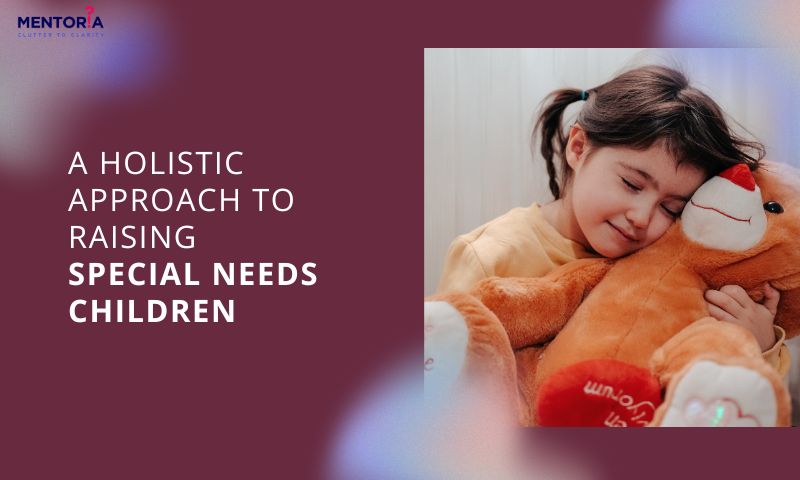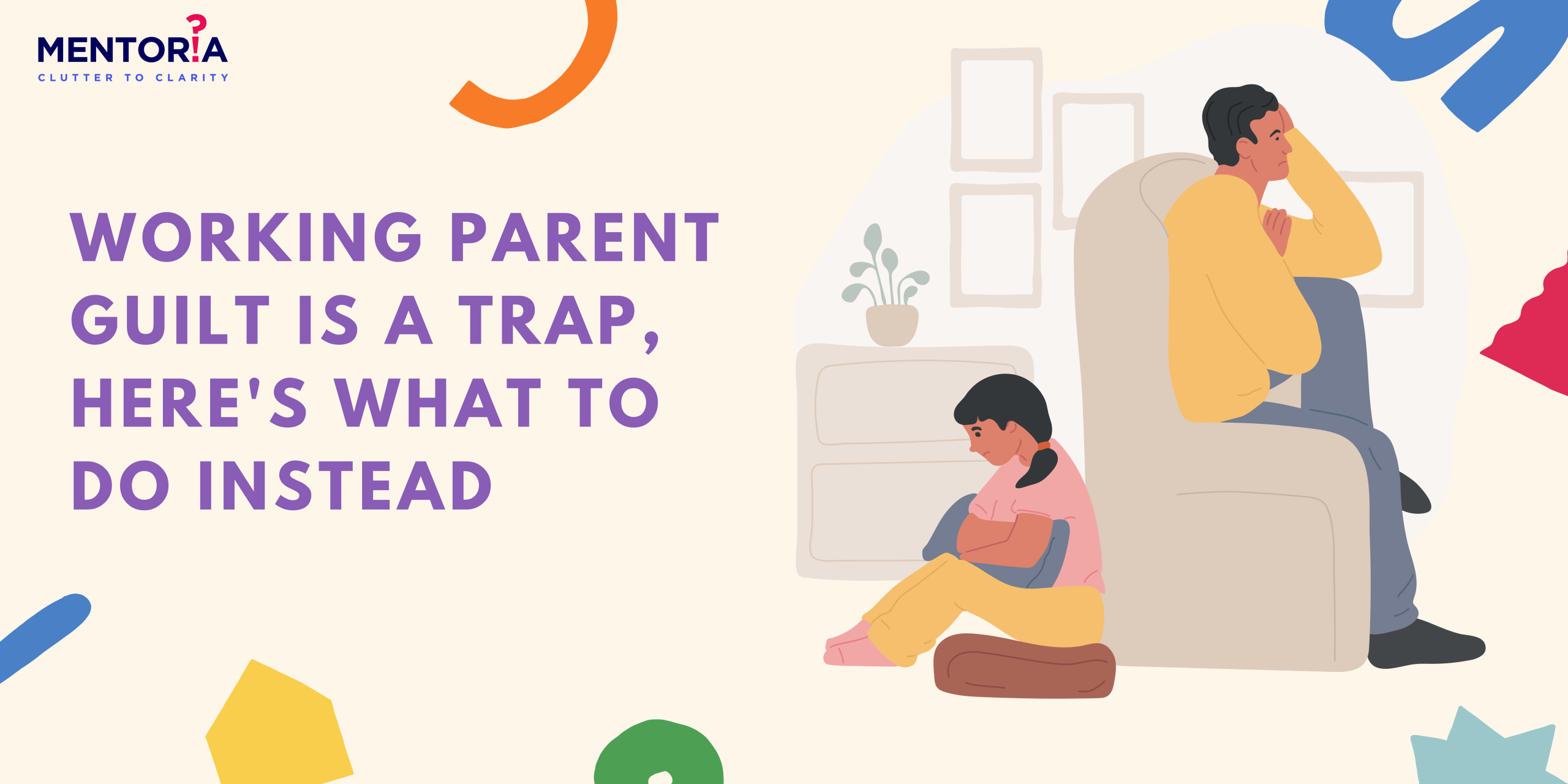A Holistic Approach To Raising Special Needs Children

Welcome to a journey of love, patience, and unwavering dedication – the incredible world of parenting special needs children. It’s a journey that comes with unique challenges and unparalleled rewards, and in this guide, we’re here to hold your hand every step of the way.
Before we dive in, it’s important to recognise that parenting a special needs child is a profound and deeply personal experience. We want to empower you with insights, strategies, and, most importantly, the knowledge that you’re not alone on this path.
Now, let’s clear one thing up right away: there’s no “normal” in parenting, especially when it comes to special needs children. Each child is wonderfully unique, as are their needs, strengths, and challenges. This guide is not about providing you with a strict recipe for success but rather equipping you with the tools, knowledge, and support to create a path tailored to your child’s individual journey.
Understanding The Spectrum Of Special Needs
Special needs children come in all shapes, sizes, and abilities. The term “special needs” encompasses a wide range of conditions, including autism, ADHD, Down syndrome, sensory processing disorders, and more. It’s important to remember that each child is unique and may require different approaches to nurturing their potential.
The Importance Of Early Diagnosis
Early diagnosis is like a treasure map in the world of special needs parenting. It can open doors to early intervention programs, support networks, and a clearer understanding of your child’s unique needs. So, if you notice any developmental delays, don’t hesitate to seek professional guidance.
Globally, a considerable number of children experience developmental delays or disabilities. According to the World Health Organization (WHO), approximately 15% of the world’s population, including children, live with some form of disability. Early diagnosis and intervention are key to improving their well-being and future prospects. In India, where the population is over 1.3 billion, the importance of early diagnosis is equally significant. India’s healthcare infrastructure varies widely, from urban areas with advanced medical facilities to rural regions with limited access. Early diagnosis can help bridge this gap by identifying children in need, regardless of their location.
Parenting With Purpose: A Comprehensive Guide
Here’s your roadmap to parenting with purpose for special needs children:
Education: The Key To Empowerment
Education is not just about textbooks and classrooms; it’s about empowering your child with knowledge, skills, and confidence.
- Individualised Education Plan (IEP): If your child’s special needs require additional support, an IEP can be a game-changer. It’s a tailored plan that ensures your child gets the education they need, with accommodations and modifications to suit their unique learning style. In India, the adoption of Individualised Education Plans (IEPs) for special needs children is increasing. Success after implementing an IEP is evident when a child demonstrates improved academic and social skills, greater self-confidence, and enhanced overall well-being.
- Inclusive Education: Many schools now embrace inclusive classrooms, where special needs children learn alongside their typically developing peers. This promotes understanding, empathy, and friendships.
- Exploring Non-Traditional Education: If the traditional school system doesn’t suit your child’s needs, consider alternative education options, such as homeschooling or specialised schools.
Building A Support System
No one can do it all alone, and that’s where your support system comes in.
- Parent Support Groups: Connect with other parents who share similar experiences. These groups provide a safe space to vent, share resources, and learn from each other.
- Professional Support: Collaborate with therapists, doctors, and educators who specialise in your child’s needs. They are valuable resources for guidance and interventions.
- Respite Care: Caring for a special needs child can be physically and emotionally demanding. Don’t hesitate to ask for help from friends, family, or respite care providers to take a much-needed break.
Communication Is Key
Special needs children often face communication challenges, and it’s crucial to adapt and find effective ways to connect.
- Augmentative and Alternative Communication (AAC): AAC tools, like picture boards or speech-generating devices, can help your child express themselves when traditional verbal communication is difficult.
- Social Stories: These personalised stories can assist in explaining challenging situations or transitions to your child, reducing anxiety and meltdowns.
Nurturing Independence
Empower your child by fostering independence from an early age.
- Life Skills: Teach your child essential life skills, such as dressing, cooking, and personal hygiene, to promote self-sufficiency.
- Advocacy Training: As your child grows, encourage them to become their own advocate. Teach them to express their needs and preferences to ensure they are heard and respected.
Embrace Sensory Awareness
Many special needs children experience sensory sensitivities. Understanding and addressing these sensitivities can significantly improve your child’s quality of life.
- Sensory Diets: Work with an occupational therapist to develop a sensory diet tailored to your child’s needs. This can include sensory activities and tools to help your child stay regulated and focused.
- Create a Sensory-Friendly Environment: Make your home a haven for sensory comfort by minimising sensory triggers and providing sensory tools like fidget toys or noise-cancelling headphones.
Patience And Unconditional Love
Patience is the ultimate virtue in special needs parenting. Your child may require more time to achieve certain milestones, and that’s perfectly okay. Offer unconditional love, understanding, and support every step of the way.
Less-Known Tips And Insights
While we’ve covered the essentials, here are some less-known tips and insights that can make your journey even more enriching:
- Music Therapy: Music therapy can be a powerful tool for special needs children. It can aid in language development, motor skills, and emotional expression.
- Animal-Assisted Therapy: Many children connect deeply with animals. Consider introducing your child to pet therapy, which can provide emotional support and help reduce anxiety.
- The Power of Art: Art therapy can be an effective means of self-expression for children who have difficulty communicating verbally. It allows them to convey their emotions and thoughts in a creative way.
- Nature Therapy: Spending time in nature can have a calming and grounding effect on special needs children. Consider regular nature outings or gardening activities.
- Develop a Sensory Diet Journal: Keeping a journal of your child’s sensory experiences can help you identify triggers and soothers. This information is invaluable in tailoring sensory strategies.
- Prepare for Transitions: Special needs children often struggle with transitions. Use visual schedules and countdowns to help them understand and prepare for changes in their routine.
- Advocate for Inclusivity: Be an advocate not only for your child but for inclusivity in your community. Promote understanding and acceptance of people with special needs.
Nurturing Special Needs Children With Mentoria
In the ever-evolving journey of parenting, the path may be different when you have a child with special needs. It’s a unique voyage, filled with remarkable challenges and joys that require strength, patience, and an unwavering sense of purpose.
As parents of children with special needs, you’ve already demonstrated incredible resilience, love, and dedication. But, remember, you don’t have to navigate this path alone. Mentoria is here to offer you a supportive hand on this journey.
Our team understands that each child is unique, and their needs and abilities are as individual as they are. We provide specialised guidance and resources tailored to your child’s specific needs, ensuring they reach their full potential. Through our extensive network of experts, counsellors, and support groups, and corporate workshops for working parents, you’ll find the assistance and encouragement you need to create a loving and nurturing environment for your child.








